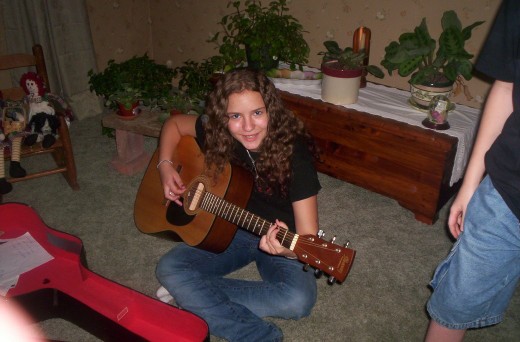The Veil of Mental Illness | July 4th, 2015 | by Alexa Moody

 I’ve often said that it doesn’t matter how many books you’ve read, degrees you’ve earned, or how many letters come after your name – you will never understand mental illness unless you’ve experienced one yourself.
I’ve often said that it doesn’t matter how many books you’ve read, degrees you’ve earned, or how many letters come after your name – you will never understand mental illness unless you’ve experienced one yourself.
This, I believe, is primarily what makes myself and the volunteers in Please Live qualified to talk about our experiences. We’ve been there. We know what it feels like to suffer in silence, to feel like we’re drowning, and to believe that we are being perfectly logical when, in fact, we aren’t.
Of course, the volunteers here also have training. We are mental health professionals. Simply experiencing a mental illness and being willing to talk about it does not qualify you to actually do so. There are certain guidelines that should be understood and followed regarding telling your story. See last month’s blog post on those guidelines, if you are interested.
Today’s post is to do my best to explain the mental state of someone who is sick with a mental illness such as depression or anxiety.
—-
I started keeping an online diary when I was in middle school, which was also roughly when mental illness started to really make an impact on my life. Over the years I’ve captured snapshots of the anguish I was experiencing as a middle and high-school student. Reading back over the entries brings back fresh waves of pain, as it is sort of a time machine that takes me back to the moments of writing those entries. I’ve fought with myself about whether or not I wanted to trash those old diaries, but part of me always wanted to hang on to them so that I can always remember where I’ve been and see where I am now.
Sharing any entries from my diary is a hard thing to do, mostly because I’m kind of embarrassed by it. There’s a lot of immature stuff in there, but in my defense, I was immature. Here’s a snapshot from November 11, 2004, when I was thirteen and in the first half of 8th grade:
“Did you ever feel like your soul was falling apart? Drifting to the bottom of the sea like the treasure from a broken ship? So many screams [in just] one night, as countless people drown in the watery depths of depression and life. When reality slaps [you] upside the head and says, “it’s not worth it”, so [you] give up your gasps for breath, and soon enough, [you] hit the bottom of the sea along with the rest of the rusted jewels […]”
I wrote this when I was thirteen. Thirteen! For added shock factor, the photos featured in this article is me when I was thirteen, so you can see the exact face that these thoughts were plaguing. It even shocks me, looking back at my hurt, wondering how I managed to get by day to day until I finally saw a counselor during my freshman year of high school. I was in a lot of pain.
But I didn’t know I was, and that’s sort of the kicker. Even though thoughts like that drifted through my mind, I didn’t think anything was wrong.
I believed with all my being that I was just maturing faster than everyone around me. I looked at my peers and scoffed at them; they were all stuck in their fairy-tale Disney World happily-ever-after illusions of childhood. I, however, was an adult. I could see the reality for how terrible the world really was, and soon enough my peers would mature like me and see the truth.
One of the biggest barriers between a hurting person and getting help is that oftentimes the individual is not even aware that they are sick. In fact, the thoughts drifting through their brains seem quite logical. If someone is stuck in this endless loop of despair long enough, thoughts of suicide start to make a considerable amount of sense.
I read an article not too long ago that made an amazing comparison between suicide and the events of 9/11. I realize that writing about 9/11 is already ancient history in a lot of ways. I was in 5th grade failing a math test when my mom abruptly picked me up from school due to the bombings at the world trade center. All I cared about at the time was the fact that I got out of school early that day. However, I remember watching the news, barely understanding what was happening, watching people stuck in the towers choose between burning alive or jumping from the towers. Many chose to jump.
The article I read compared those jumping with the act of suicide. The individuals stuck in the tower did not actively want to die, but instead they saw the flames approaching, and chose the only route of escape they could find; the window. A suicidal person’s thoughts are very similar. It isn’t that they want to die, but rather they see the fires consuming their lives, and they run for the only exit they can see; death.
Let me reiterate: suicide is not, and never is, the only way out. Unlike the victims of 9/11, we have emotional and mental fire extinguishers called coping mechanisms and 24-hour hotlines and chatlines, and we have firefighters in the form of our social supports to assist in whatever fiery trap we find ourselves.
My point is, instead, to do my best to give you a look into my head when I was thirteen, when I was depressed, when I was on a steady decline into passive suicidality.
There is a myth that someone who is depressed or suicidal is easy to spot. Sometimes they are – the social outcast, the loner, the bullied, and the bully are all classic and stereotypical personalities that are likely dealing with mental or emotional struggles. But oftentimes the class clown and the academic perfectionist are struggling too, and we tend to overlook them.
Most people, especially my family, were not aware of the depths of my hurt. I hid it well. I went to church on a regular basis, I sang in the worship band, I had a group of friends, I was sociable. I had dates to pretty much every school dance. I had mostly A’s and B’s. I was, for the most part, a good kid. But I couldn’t see any of that. All I could see was what I wasn’t.
Teens: If you’re hurting, let me be the first to tell you that I’ve been there. I can’t even begin to describe how important counseling was for me. I learned how to use my fire extinguishers and how to call the fire department when flames consumed my soul. If you don’t want to talk to your parents, then seek help yourself. If you’re 14 or older you have the right to confidentiality. Check out the resources on our page, call 1-800-27-TALK (8255), or text 741-741 to talk to someone and to find some help.
Parents: Make sure you are checking up on your child on a regular basis. You’ve always made it a priority to take them to the dentist, the yearly doctor’s checkup, the eye doctor – so make sure you are keeping mental health in the loop too. You can even ask your primary care doctor to evaluate for mental health symptoms at your child’s next checkup. Or, simply ask your child yourself.
And as always, if anyone needs help, please feel free to connect with us here at Please Live and we can help give advice or make a referral for yourself or your loved one.
Peace,
Alexa Moody | President of Please Live
PS: This is me today, healthy both physically and mentally, happier than I ever thought possible, more loved than I ever thought I deserved.

